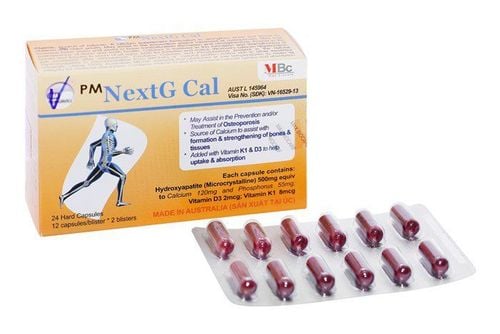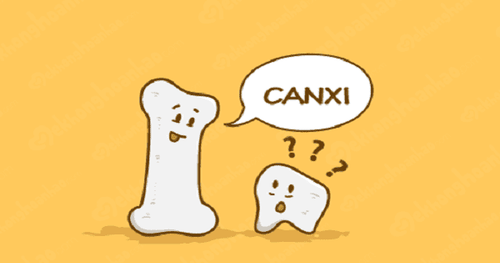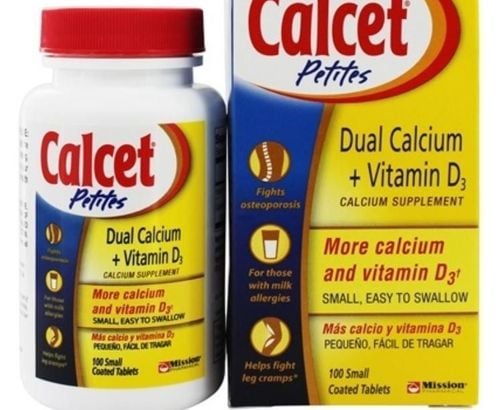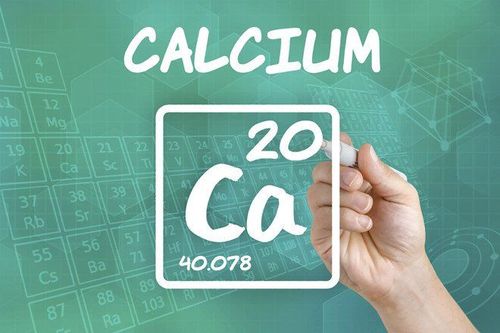This is an automatically translated article.
Calcium is very important for health, making up the majority of bones and teeth. Calcium deficiency affects the heart, muscle function and nerve signaling. The recommended daily calcium intake is 1,000mg, but many people don't get enough calcium from their diets.
1. Nuts
Many types of seeds are small in size but very nutritious. In particular, sesame and chia seeds are two familiar types, not only contain a lot of calcium, but also provide protein and healthy fats. Example:
Chia seeds are rich in plant-based omega-3 fatty acids. 1 tablespoon (9g) of sesame provides 9% of your daily calcium needs, plus other minerals like copper, iron and manganese.
2. Cheese
Most cheeses are excellent sources of calcium. Among them, Parmesan cheese has the most calcium, the rest provide about 5 - 20% of the daily calcium requirement per 28g serving.
The body absorbs calcium D3 from dairy products more easily than from plant sources. Many cheeses are also rich in protein, such as cottage cheese. People who are lactose intolerant can choose aged, hard cheeses to make them easier to digest.
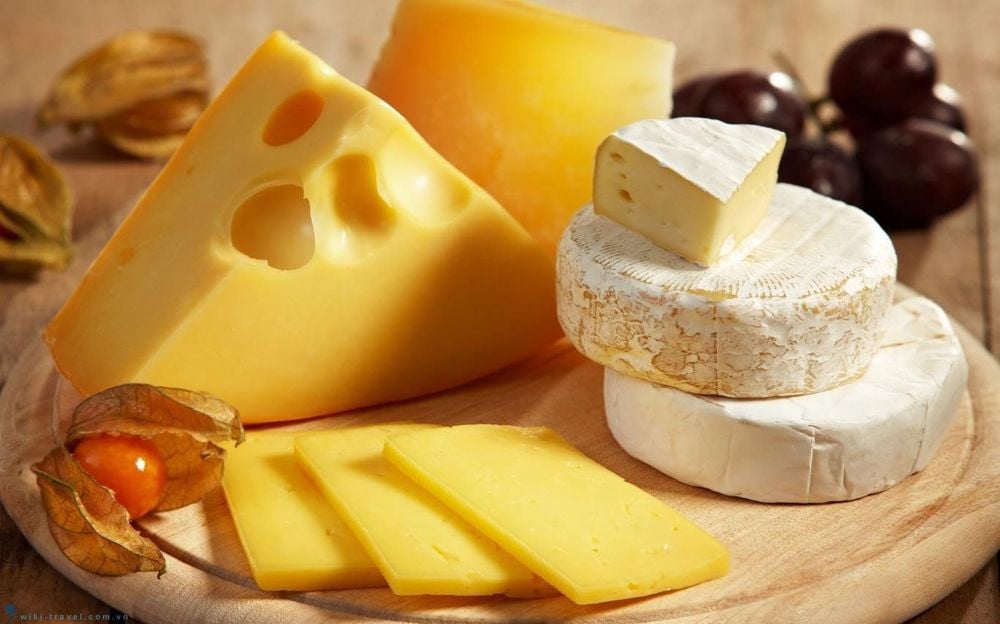
Phô mai là một trong các nguồn thực phẩm giàu canxi tuyệt vời
A recent study found that dairy products may reduce the risk of heart disease. Eating cheese daily helps you avoid metabolic syndrome, stroke and type 2 diabetes.
However, cheese is also high in fat, calories and sodium. So some sensitive objects should pay attention when using.
3. Yogurt
Yogurt is both an excellent source of calcium and rich in live probiotic strains, which bring many health benefits.
One cup (245g) of plain yogurt contains 30% of your calcium needs, plus phosphorus, potassium and vitamins B2 and B12. Low-fat yogurt provides more calcium, meeting 45% of the daily requirement in one cup. Greek yogurt contains much needed protein, but lacks calcium D3 than regular yogurt. Using yogurt in combination with a healthy diet will improve health, increase metabolism, and reduce the risk of metabolic diseases (such as: type 2 diabetes and heart disease).

Sữa chua chứa lượng lớn nguồn canxi và men vi sinh
4. Canned Sardines and Salmon
Canned sardines and salmon are rich in calcium, thanks to the soft, edible bones.
One 92g can of sardines provides 35% of calcium needs; An 85g can of salmon with bones provides 21% of calcium needs. These oily fish are low in mercury and packed with protein, fat and omega-3s - great for your heart, brain and skin. Additionally, both sardines and salmon are high in selenium, a mineral that can prevent and detoxify mercury.
5. Legumes
Beans are high in fiber, protein and micronutrients, in addition to being rich in iron, zinc, folate, magnesium and potassium. Some varieties of beans also have significant amounts of calcium.
Dragon beans top the list of foods rich in calcium, one cup (172g) cooked has 244mg of calcium, equivalent to 24% of daily needs; One cup (179g) of cooked white beans, providing 13% of calcium needs, is also considered a good source of calcium; Other legumes have less calcium, ranging from 4 to 6% of your daily requirement per cup. Beans are very nutritious and should be included in any healthy diet. Research shows that beans can lower bad LDL cholesterol levels and reduce the risk of type 2 diabetes.

Ngoài chất xơ, protein thì các loại đậu giúp bổ sung một lượng canxi đáng kể
6. Almonds
Of all the nuts, almonds are one of the richest in calcium. About 22 almonds provide 8% of calcium needs.
In 28g almonds also contain 3g fiber, healthy fats and proteins. It's also an excellent source of magnesium, manganese, and vitamin E.
Eating nuts may help reduce blood pressure, body fat, and metabolic disease risk factors.
7. Whey Protein
Whey protein is made from whey and has many health benefits. This is a great source of protein with a full spectrum of fast-digesting amino acids. Some studies show that consuming whey protein helps with weight loss and blood sugar control. Whey protein is also not lacking in calcium. One scoop of pure whey protein powder contains 200mg of calcium, or 20% of the daily requirement. This supplement is widely available at sports nutrition stores.
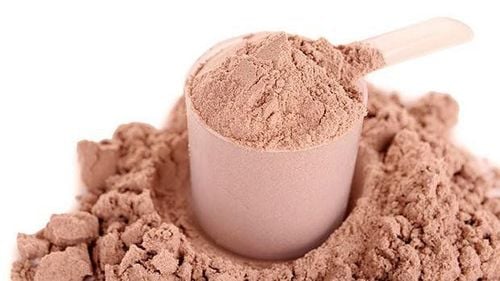
Whey protein được chế biến theo công thức và có nhiều lợi ích sức khỏe
8. Green leafy vegetables
Dark green vegetables are good for health and especially rich in calcium, such as spinach (spinach/spinach), collard greens and kale. Specifically, 190g of cooked collard greens has 266 mg of calcium, equal to a quarter of the need in a day.
Note that some vegetable varieties are also high in oxalates. These are naturally occurring compounds that bind to calcium, reducing the amount of calcium D3 in your body.
9. Food Supplements
Some calcium fortified cereals can provide up to 1,000mg (100% of daily requirement) per serving. However, your body cannot absorb much calcium at once. So it's best to spread your intake evenly throughout the day.
Wheat flour and cornmeal can also be fortified with calcium. As a result, some breads, tortillas and cookies contain high levels of calcium.
There are also drinks such as orange juice, milk from seeds, ... also fortified with calcium. You can read the labels to find out how much calcium D3 is added in these mineral-fortified foods.
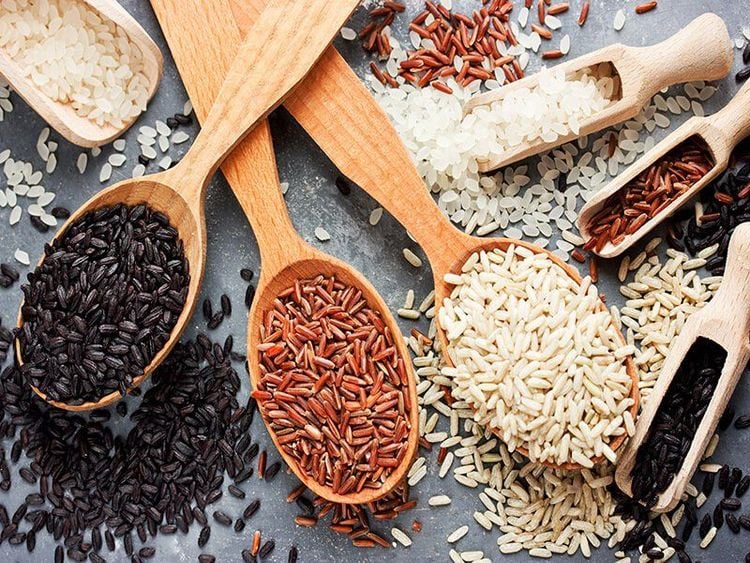
Các loại ngũ cốc có thể giúp người dùng bổ sung một lương canxi hằng ngày
10. Amaranth
Amaranth is very nutritious, a good source of folate and a lot of minerals (such as manganese, magnesium, phosphorus and iron).
Amaranth seeds are also not deficient in calcium, but the leaves are superior. 132g of cooked amaranth leaves contains 28% of calcium needs, in addition is very rich in vitamins A and C.
11. Soybeans and Tofu
One cup (155g) of edamame (shelled young soybeans / Japanese soybeans) provides 10% of the daily calcium requirement. It is also a good source of protein and fulfills your daily folate needs.
Tofu is also particularly high in calcium. Consuming only 126g of tofu, you can get 86% of your daily requirement.
12. Figs
Dried figs are rich in antioxidants and fiber, and have more calcium than other dried fruits. 28g of dried figs provide 5% of the daily calcium requirement. This fruit also contains a significant amount of potassium and vitamin K.
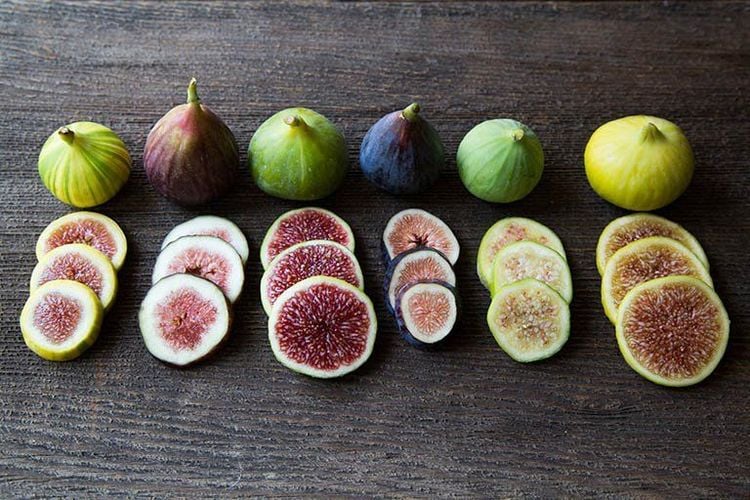
Quả sung rất có ích trong việc bổ sung canxi và chất xơ
13. Milk
Milk is one of the best and cheapest sources of calcium D3. In addition, milk also provides protein, vitamin A and vitamin D.
One cup (237ml) of cow's milk has 276 - 352mg of calcium, depending on the type whole or fat-free. Calcium D3 in milk is also well absorbed by the body. Goat's milk is also an excellent source of calcium, providing 327mg per cup (237 ml). Foods rich in calcium include dairy products, such as cheese and yogurt. Many other sources are also high in this mineral, including seafood, green vegetables, legumes, dried fruit, tofu, and fortified foods.
Reference source: Healthline.com; nhs.uk; webmd.com





